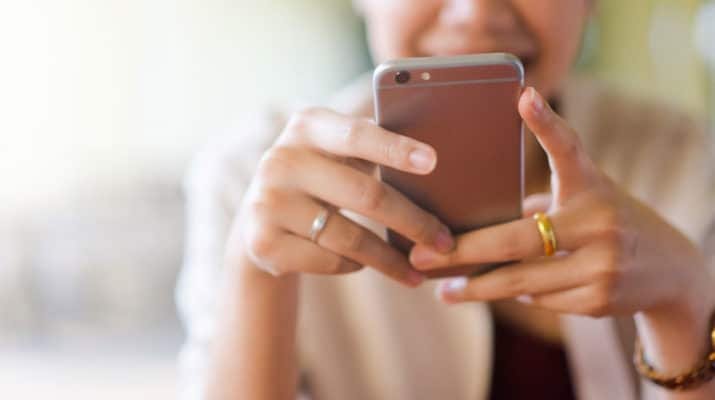By Deborah Jeanne Sergeant
Whether it’s to alleviate boredom from quarantine, connect amid social isolation or get the latest news on COVID-19, social media seems to be a busy place these days as the world turns more and more virtual.
In general, and in light of current events, the effects of social media on mental health are mixed.
“Facebook is a hedonic treadmill,” said Corey Leidenfrost, Ph.D., research assistant professor and associate training director, department of psychiatry at Jacobs School of Medicine and Biomedical Sciences. “You watch other people and what they’re doing and think you should be doing it and you want to keep up.”
Posting can help one stay motivated to drop 40 pounds or finish a remodeling project. While the accountability is good, it can also give others a skewed view of the poster’s life. For example, the do-it-yourselfer who renovated the kitchen may not show that his lawn is overgrown and his family has not been able to use the kitchen for several weeks. Or the dieter showing off a tremendous weight loss doesn’t share about the social outings missed to ensure sticking with the new eating plan. It’s easy for social media to turn into a showcase of perfect moments that can leave others feeling like they don’t quite measure up if they haven’t fixed up their home or lost the weight they want to lose.
“Social media can be a facade because you don’t know what really is going on,” Leidenfrost said. “That pressure to put up a particular image. Part of it is that reappraisal that what other people portray isn’t reality. Knowing that can take pressure off. Focus on what’s meaningful for you.”
While superficially connecting with others online may offer diversion, Leidenfrost said that real-life relationships are what’s more important. Especially during isolation, social media can help reach out to people one actually knows — not “friends” who never met in person.
Shira Gabriel, social psychologist with University at Buffalo, specializes in the human need for social connection. She wants people who use social media to “use it as a way to connect with others and have conversations,” she said. “Research says people who do that are happier and healthier. Social media isn’t good or bad, but can be used in ways good or bad for mental health.”
Only “lurking” — reading others’ posts but not participating in posting and commenting — can result in feeling down, since it’s not a give-and-take conversation. The one lurking isn’t sharing anything.
“We focus in on others’ best moments, not what their real life is like,” Gabriel said. “If you use it to interact, comment and post, if you share recipes and ask for them, and share your highs and lows and comment on others highs and lows, that can be a positive way in connecting with others, especially when we’re limited in our real world connection.”
She likes the community-building posts that share how others are positively coping with COVID-19 isolation, such as trading recipes, placing a teddy bear or rainbow in the window for children to count while on a walk or writing positive messages on a sidewalk with chalk to encourage others.
“If you can find creative ways to find ‘collective effervescence’, a connection of sacredness and community, that is helpful,” she said.
As the coronavirus pandemic continues, many people turn to social media for news; however, since any person can post anything on social media, the information may not be accurate. Instead, stick with sources such as the World Health Organization and the Centers for Disease Control and Prevention — and limit time looking at news stories promoted through social media. Accurate news can still focus too much on negativity.
Look at social media for entertainment and connection and not as much as a news source.
Shawn Marie Cichowski, life and energy coach, certified mindfulness and meditation instructor, and owner of the WNY Life Coaching Center in Williamsville, said that using social media for news limits the news only to the preferences of the user.
“There’s not a broad scope of what you’re seeing,” she said. “It opens the door to everyone’s opinion which sometimes isn’t helpful. With COVID-19, it’s a perspective, but not a full perspective. What we focus on is what we give our life to. What does news usually cover? A lot of times, it’s not always the positive.”
Following someone who consistently posts positive content may help improve the social media feed.

